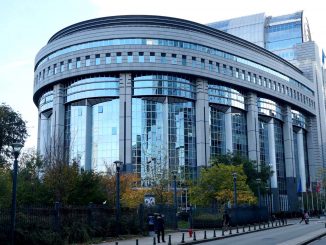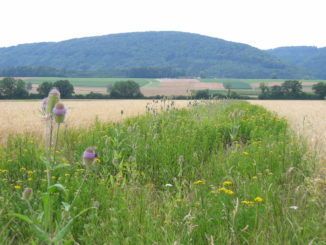In part three of this exclusive three parter on Spain’s internal CAP debate, Marta Zygadlo puts forward the dissenting positions from Spain’s CAP consultation position. The positions of two regions – Aragon and Navarre – and NGOs including Birdlife and WWF are put forward. Part 2 is here, part 1 is here.
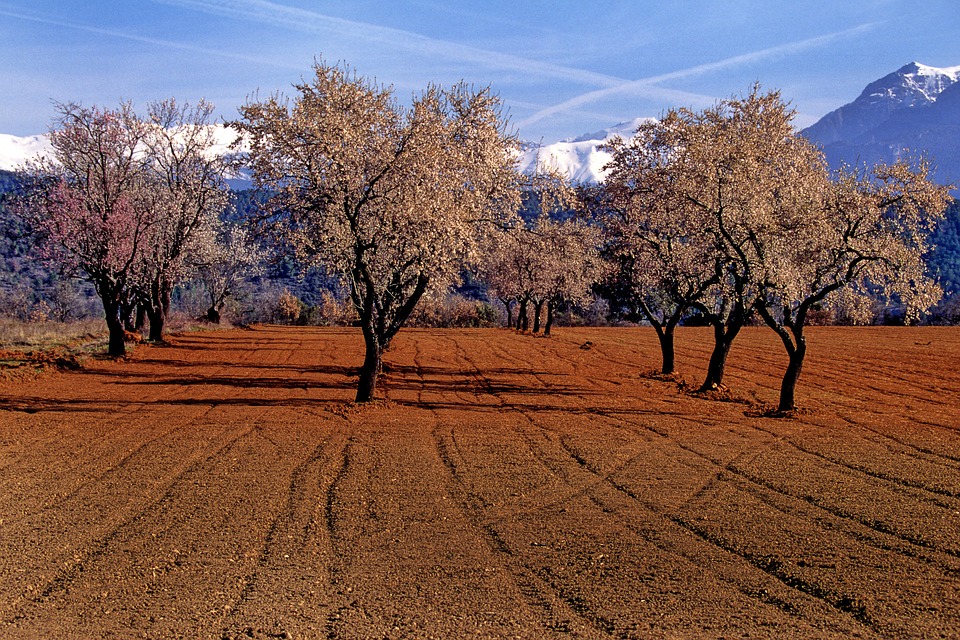
As outlined in part one and two of this series, the common document Spain’s Ministry for Agriculture adopted for the CAP consultation identified wide range of gaps within the CAP and proposed ideas to fill them. It reflects a common minimum as stated by the Ministry and Regional Governments. However, not everyone was happy with it: it was endorsed by all regional governments that participated in the sectoral conference in April where the consensus was reached, with the notable exceptions of Aragon and Navarre, regions which explicitly rejected it. Cantabria and Basque Country did not attend that conference.
Indeed the common position document does not address many key issues that were raised by almost all regional governments and agrarians organizations, such as historic references, sectoral privileges and supports modulation. They refer to aspects of Spain’s national implementation that are strongly criticized for causing social, territorial and generational inequalities and hindering land access of young farmers. All these questions were recognized in conclusions of “Building the Future CAP” conference (see video series in playlist below) however reserved for internal debate beyond the common position for the EU negotiations.
Read Spain’s Ministry of Agriculture answers to the European Commission CAP consultation (Spanish)
https://www.youtube.com/watch?v=QuAQ7E7gY1Y&list=PLPe9zVlF_C7Cbd3bECXL5HO3juMDQ7Peb&index=1
Also, Spain’s submission to the Commission fails to explicitly address other important questions. These include distortions of decoupled payments, organic farming vs. productivity, CAP’s implementation a la cartè in each Member State, food waste linked to overproduction and transition to more environmentally sustainable and socially responsible agricultural production models such as agroecology, organic agriculture, small-scale and family farming and extensive and semi-extensive livestock breeding.
Once the agreement was reached the Spanish Minister of Agriculture, Isabel Garcia Tejerina, explained that the document was meant to respond with a common position to public consultations launched by the Commission in May and to be a base for seeking alliances with other Member States and influence the ongoing debate of the CAP’s 2020 reform. According to the Minister, it encompasses claims of the majority of regional governments in favor of direct payments using a language that will allow her to defend these in Brussels. The Minister also pointed it out that she advocates for CAP’s evolution and not revolution.
Aragon’s government expected from the Spanish Ministry of Agriculture a more ambitious common position proposal that would allow more ambitious reform as well. Aragon rejected the document arguing that it does not lay the foundations for reforming the CAP in depth. The Regional Minister of Rural Development and Sustainability of Aragon Joaquín Olona, affirmed that this proposal as written does not address the main problems of the current EU agricultural policy, as it seeks to ‘maintain the current model for the implementation of the CAP without correcting its weaknesses’. On the one hand this regional minister hoped that the document will finally deal with the historical rights issues. For Aragon, the lack of a mention of this point actually means their maintenance. On the other hand he highlighted that the proposal does not specify how to improve farmers’ and livestock breeders’ income.
During the “Building the Future CAP” conference, Aragon pointed out that the CAP has never improved farmers’ income and demanded abandoning of the status quo.
Aragon considers the current CAP, both in its conception at the EU level as in its implementation at national level causes income instability and insufficiency – and this needs to be amended urgently. According to the data they collected in Aragón, 71% of individual CAP’s beneficiaries declare that their agrarian income suppose 9% of their total income. They also verified that the higher the agrarian income of a beneficiary the higher the corresponding support.
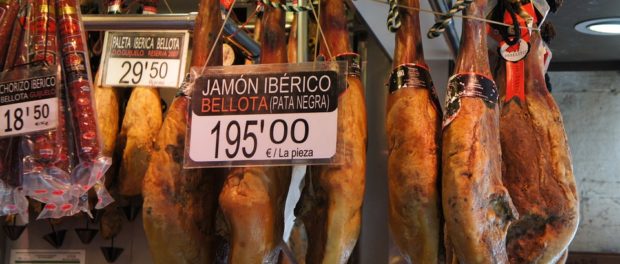
This regional government, which considers food as public good, proposes substituting the payments per hectare for payments aimed to compensate the difference between declared agrarian income and referential one. This should be applied in an inclusive way, regardless of sectoral, territorial or dimensional approaches and be conditioned to the production of food in economically, socially (in terms of labor) and environmentally sustainable ways. At the same time such conditioned payments will penalize the lack of production, idleness and unsustainable use of agricultural resources, including behaviour and actions that are damaging biodiversity, climate, soil, water or health. It would also mean removing of historical rights and suppose a great simplification of administrative process and of necessary controls that currently must be carried out by different administrations.
Therefore, for Aragon, although they did not expect that the Ministry would reflect in details their proposal, the common position is unacceptable since it limits in a decisive way the possibility to achieve a fairer, equitable, effective and efficient system. At the same time Aragon indicated that the debate remains open and they believe it will be possible to introduce substantial amendments to this unfair CAP. In this regard, Aragon’s government submitted its detailed proposal to the Spanish Ministry of Agriculture, to the EU Commissioner of Agriculture and incorporated it in EU Commission public consultations. Furthermore, they also submitted several amendments in terms of their proposal to the European Committee of the Regions (CoR)’s draft of explanatory opinion on the “CAP post 2020” requested by the Commission’s Vice-President and finally adopted on 12 July.
The regional government of Navarre joined Aragon in rejecting common position document, arguing that Navarre is not adequately reflected in it.
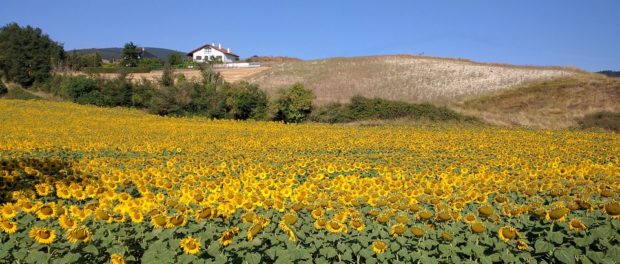
The Spanish Ministry expected this as Navarre did not submit its observations during sectoral discussion in April. However, Navarre did participate in the “Building Future CAP” conference making its claims. As Aragon, Navarre advocates for a deep CAP’s reform, demanding historical rights elimination and coupled direct payments. Navarre’s regional Minister of Rural Development Environment and Administration, Isabel Elizalde in her intervention highlighted problems caused in the livestock sector when direct payments that were coupled to heads of cattle, sheep or cows were linked to occupied area without coupling. This together with the CAP’s extreme and rigorous application caused difficulties in eligibility of recognized aid’s rights and contributed to the situation when livestock is grazing in areas different from those declared for payments. Consequently, Navarre asked: how it is possible that such unfair payments systems is consolidated until 2020?
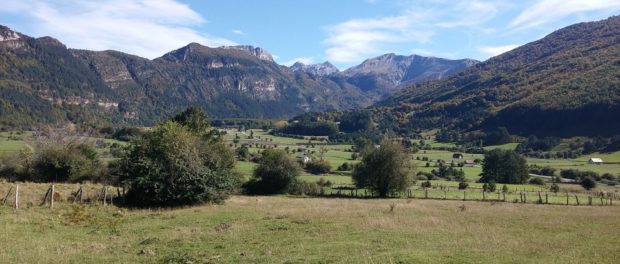
This regional government also emphasized the fact that Spanish farmer’s support is much lower that those received in bordering countries. As an example, they indicated that a livestock breeder in Navarre with coupled payment of 11€ cannot compete with 27€ received by French livestock breeder. Such differences are more obvious when adding those coming from rural development payments. In consequence the livestock breeder in Navarre find themselves obliged to sell below production cost.
From Navarre’s point of view major regulatory coherence and clear and fair rules are needed in order to achieve effective functioning of the internal market, avoiding competition’s distortion due to CAP’s different implementation models and budgets in each Member State. Navarre disagrees also with a totally market-oriented CAP. They affirmed that dismantling of lactic sector support, even though it wasn’t a perfect tool, generated a deep crisis and made disappear more than thousand milk farms at national level. Such political decisions, according to this regional minister, seems to move the sector towards a production model where only the economic dimension is taken into account.
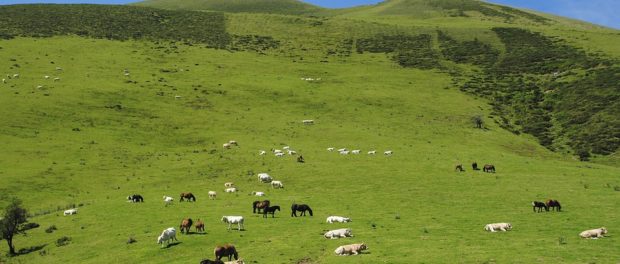
For Navarre agriculture has many more dimensions. In this Spanish region 40% of lactic bovine farms are located in high mountain zones. These farms are playing a key role in social and economic development in areas of high risk of depopulation, providing environmental benefit and territory management services. This model of production is confronted with emerging business activities closely linked to the US model that Navarre does not share since it is incompatible with social agriculture based on professional farmers that has an important impact on Navarre’s economy. Therefore Navarre considers it necessary to open a public national and European debate asking what kind of agricultural and livestock model is wanted in the EU.
In such debate all citizens should participate. They believe it is necessary to put red lines, focusing not only on food safety but also give value to food sovereignty moving from strongly market oriented agricultural and trade policies. In this context, they advocate for the existing Community preference concept. In Navarre’s opinion it is also necessary to review participatory rural development strategies.
SEO/Birdlife and WWF Spain, on their side highlighted that most of the public funds are currently earmarked for industrial agriculture, an unsustainable and unfair agri-food system, and do not serve to ensure a sufficient agricultural income to the most valuable farms from social and environmental point of view. 20% of the beneficiaries (large producers and landowners) account for 80% of supports. Many of these payments, such as those for fruit and vegetables or vineyards, are concentrated in areas with the greatest pollution and over-exploitation of water.

On the other hand, farmers who produce respecting nature, and who preserve landscapes such as grasslands or olive groves of high natural value are feeling marginalized by the CAP since they hardly receive support. These environmental organizations add that all this happen despite the fact that the relationship between agriculture and the environment is evident. They indicate that in Spain, 55% of the arable land in use corresponds to High Nature Value Farming, and 70% of the 14 million hectares of the Natura 2000 Network have an agricultural use.
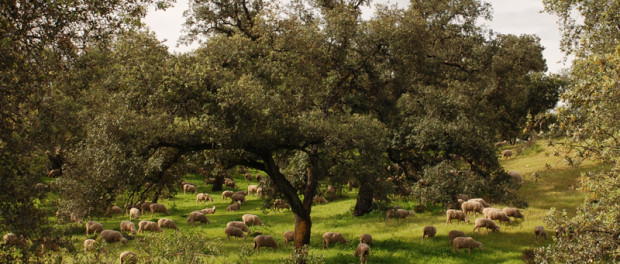
Furthermore, to evidence the ineffectiveness of CAP’s reforms, the Association of Iberian Livestock Breeders denounce that in the last 10 years 8 million sheep from the national cattle herd have been lost. Therefore, organic farmers and livestock breeders, above all those of a small-scale, demand the CAP’s redefinition: all that is involved in organic farming (produce food in a healthy way, restore ecosystems, care for rivers, maintain the soil’s fertile layer) is actually the future of sustainable and intelligent agriculture and that is what the CAP has to promote.
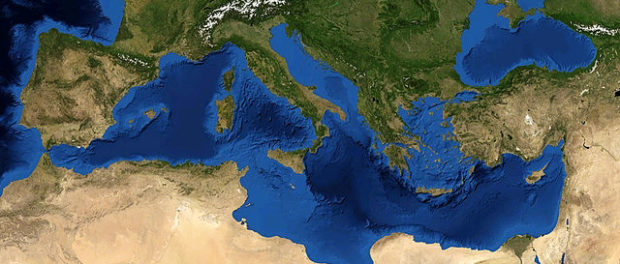
Finally, it should be mentioned that Spanish farmer organizations have joined the South Europe countries’ meetings, which are taking place to build the common Mediterranean front regarding the future CAP. Their aim is the recognition of the significance of Mediterranean farmers within the CAP. The second round of contacts held in Portugal in past June was attended by Spanish, Italian, Greek, French and Portuguese farmers organizations, associations and cooperatives.
To conclude, it appears that the internal debate regrading post 2020 CAP’s reform between 17 regional governments, which Spain is already facing, will be even more important and complicated that the debate on the EU level. At the same time, perhaps it can be easier to endorse some of the most revolutionary proposals negotiating and making alliances either at EU institutional or regional level.
The current direct payments (85% of the budget of the 1st Pillar) calculation model in Spain is based on historical rights allocated in the period 2000-2002 at the individual level; The amount of support received by farms is conditioned to their orientation (kind of production) and dimension in that period. Farms that reoriented its production or changed their dimension lost their rights or had to buy rights on the market.
 Marta Zygadlo is a lawyer based in Barcelona, Spain. Her professional background is Law, which she studied in Poland, Germany and Spain. Having practiced several years in trademark law, she decided to shift her career and to specialize in areas that she is passionate about – those related to food systems. At the moment, she is completing the Masters program in Food, Society and International Food Governance at the Open University of Catalonia. Her interests encompass topics and areas like sustainable food systems, food security based on the right to food, food sovereignty, food law and food policies.
Marta Zygadlo is a lawyer based in Barcelona, Spain. Her professional background is Law, which she studied in Poland, Germany and Spain. Having practiced several years in trademark law, she decided to shift her career and to specialize in areas that she is passionate about – those related to food systems. At the moment, she is completing the Masters program in Food, Society and International Food Governance at the Open University of Catalonia. Her interests encompass topics and areas like sustainable food systems, food security based on the right to food, food sovereignty, food law and food policies.



